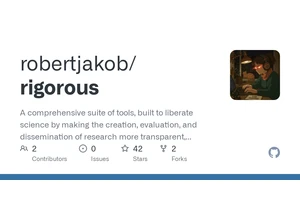ive spent the past few months designing a framework for orchestrating multiple large language models in parallel — not to choose the “best,” but to let them argue, mix their outputs, and preserve dissent structurally.
It’s called Maestro heres the whitepaper https://github.com/d3fq0n1/maestro-orchestrator (Narrative version here: https://defqon1.substack.com/p/maestro-a-framework-for-coher...)
Core ideas:
Prompts are dispatched to multiple LLMs (e.g., GPT-4, Claude, open-source models)
The system compares their outputs and synthesizes them
It never resolves into a single voice — it ends with a 66% rule: 2 votes for a primary output, 1 dissent preserved
Human critics and analog verifiers can be triggered for physical-world confirmation (when claims demand grounding)
The feedback loop learns not only from right/wrong outputs, but from what kind of disagreements lead to deeper truth
Maestro isn’t a product or API — it’s a proposal for an open, civic layer of synthetic intelligence. It’s designed for epistemic integrity and resistance to centralized control.
Would love thoughts, critiques, or collaborators.
Comments URL: https://news.ycombinator.com/item?id=44109664
Points: 4
# Comments: 0
Melden Sie sich an, um einen Kommentar hinzuzufügen
Andere Beiträge in dieser Gruppe
Article URL: https://blog.helsing.ai/sguaba-hard-to-m

Article URL: https://arxiv.org/abs/2401.17270
Comments URL: https://news.ycombinator.c

Article URL: https://timestripe.com/magazine/blog/timezone/

Article URL: https://arxiv.org/abs/2505.23735
Comments URL: https://news.ycombinator.c

Article URL: https://terrytao.wordpress.com/2025/05/31/a-lean-companion-to-analysis-i/
Comments URL:

After waiting 8 months for a journal response or two months for co-author feedback that consisted of "looks good" and a single comma change, we built an AI-powered peer review system that helps re
Article URL: https://aartaka.me/this-post-is-ed.html
Comments URL: https://news
